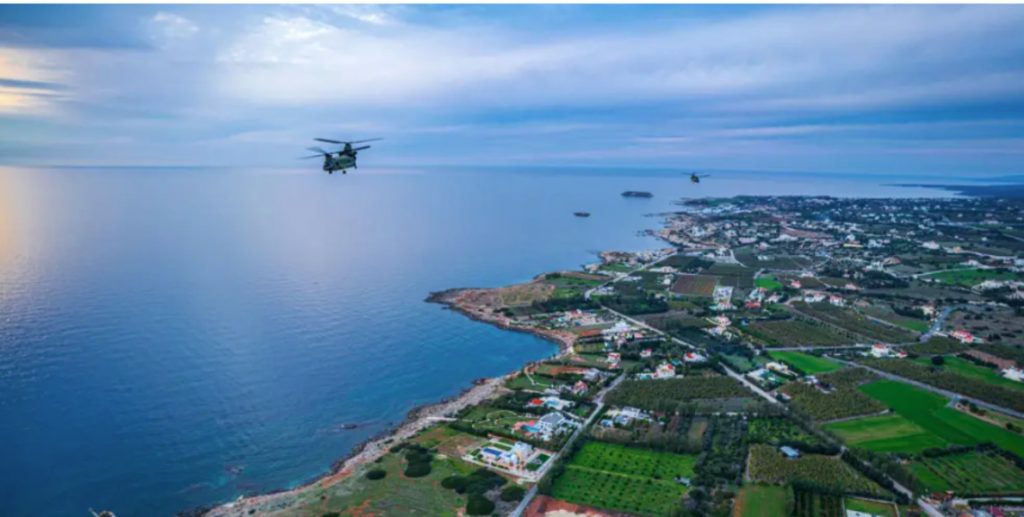(CBS NEWS): After Russia launched its invasion of Ukraine, the U.S. and its allies responded with sanctions targeting companies, oligarchs and officials with ties to Russian President Vladimir Putin.
Headlines trumpeted the trophies of Russian oligarchs seized throughout Europe — yachts in Italy, villas in the south of France and priceless art in Germany — but those fixed assets are relatively easy to locate. Finding the billions of dollars oligarchs have stashed around the world is proving to be more difficult.
How do you hide that much money from an international community that says it’s determined to find it? The question led us to Cyprus — a tiny Mediterranean island at the crossroads of Europe, Asia and the Middle East. Today, the once bustling vacation spot is in the middle of an international game of hide and seek.
A poet once described Cyprus as a «golden green leaf thrown into the sea.» The island, just 140 miles long, is wrapped in sandy beaches, and a rich history.
These turquoise waters, according to legend, were the birthplace of Aphrodite. But today, the «playground of the gods» has become a playland for wealthy Russians.
We headed down the southern coast of the island to Limassol. Before the war, it was a favorite spot for Russians to thaw. A three-hour flight from Moscow, Limassol’s mix of designer shops, fur stores, cyrillic signs and stores serving caviar earned it the nickname, «Moscow on the Med.»
But Alexandra Attalides, a member of the Cyprus Parliament, says after the fall of the Soviet Union, the oligarchs who descended on the island weren’t here for the beaches.
Alexandra Attalides: There are beautiful beaches in Spain, in Portugal, in Greece. There are a lot of beautiful beaches. I think that they found a fertile ground here that helped them.
Sharyn Alfonsi: How did the Russian oligarchs use Cyprus?
Alexandra Attalides: After 1989 when they stole the property of the Russian people and they started to build their empires. And then maybe they were afraid that someday something will happen, so they wanted their assets to be safe outside Russia. So they were looking for tax havens, and we had a very low tax rate at the time.
Sharyn Alfonsi: They got a place to hide their assets.
Alexandra Attalides: Yeah.
Maira Martini: Cyprus historically built a financial system to attract overseas wealth.
Maira Martini is an analyst for Transparency International, a nonprofit that tracks money laundering around the world. She says for decades, if you were an oligarch or just a shady character looking to hide your rubles, Cyprus, was hard to beat.
Maira Martini: It offers the secrecy and still security and that’s what criminals and corrupt individuals are usually looking for.
Sharyn Alfonsi: What do you mean it offers secrecy?
Maira Martini: So in Cyprus, for many years you could open a bank account without having a lot of questions asked. You can open a company without having a lot of questions asked, meaning you can put the money there without needing to tell who you are, where the money comes from.
Cyprus became as famous for it’s opaque banking as its clear water. Soon, like sun-starved tourists, foreign money started pouring into the island.
By 2012, the country of about a million residents had amassed bank deposits of nearly 72 billion euros. About 30% of those bank deposits came from Russian nationals.
But in 2013, the tide turned. The debt crisis in neighboring Greece, threatened to sink the Cyprus economy.
Lawmakers, fearing the country would lose all that Russian capital, pushed a scheme other countries had used to attract wealth — a «citizenship by investment» program.
Alexandra Attalides: From the beginning, for me, this was unacceptable.
Here’s how it worked. Any foreigner who invested more than 2 million euros in the country, typically buying real estate, could get a Cypriot passport, a coveted possession because Cyprus is part of the European Union.
Alexandra Attalides: So the people who are buying the passport of Cyprus, they were buying the European passport. They were buying an open door to 27 countries.
From 2013 to 2020, Cyprus issued almost 7,000 of those «golden passports» – nearly half to Russians.
Suddenly, the skyline of Limassol was injected with high-rise luxury apartments, its port with mega yachts and its stores with uber-wealthy Russians.
Alexandra Attalides: You could see them walking around like princesses, moving in the most expensive shops. They have their business, they have their houses, they have luxury houses.
But in 2020, an undercover investigation by Al Jazeera revealed corruption in the passport program.
Cyprus had illegally issued hundreds of «golden passports,» some to criminals and fugitives.
After protests and under pressure from the EU, the Cyprus government shuttered the program weeks later. But the passports were still out there.
Alexandra Attalides: When you give passports to people that later we realize that they are criminals, then you open the door of Europe to criminals.
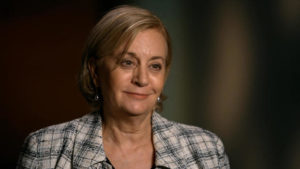
The golden passports also opened the door of Europe to Russian elites. 60 Minutes has learned that at least a dozen of these now-sanctioned Russian oligarchs — were issued — «golden passports.»
Among them: Igor Kesaev who owned a Russian arms factory.
Billionaire Alexander Ponomarenko, who was the chairman of the board of Russia’s biggest airport and who the U.S. government calls one of Putin’s «enablers.»
And aluminum tycoon Oleg Deripaska, part of Putin’s inner circle. According to the U.S. Treasury, he’s been investigated internationally for, among other things, money laundering, illegal wiretapping and extortion, accusations he denies.
Maira Martini told us a Cypriot passport could make it easier for those sanctioned oligarchs to buy property and move assets and that the cozy relationship between wealthy Russians and Cyprus is raising concern internationally.
Maira Martini: If you’re a small country that is very dependent on foreign money coming from one single country, this also even might create a conflict, right?
Sharyn Alfonsi: Really sanctions are only as strong as the weakest link. Is Cyprus the weakest link here?
Maira Martini: I think Cyprus is one of the weakest links.
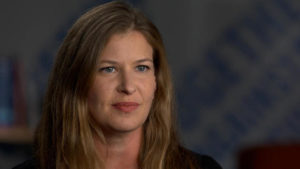
Cyprus Minister of Finance Constantinos Petrides disagrees. We first spoke to him in September. His office oversees efforts to freeze the Cyprus assets of anyone sanctioned by the EU.
Sharyn Alfonsi: Who has been sanctioned, specifically, individuals within Cyprus?
Constantinos Petrides: Regarding the citizenship, I think about ten people were found under restrictive measures. And the Council of Ministers has initiated a process to revoke their passports.
Sharyn Alfonsi: The ten people that have been sanctioned, who are they?
Constantinos Petrides: I don’t have any, any names now.
Sharyn Alfonsi: But would you be able to provide us with that list of names if we asked for it?
Constantinos Petrides: I’m not sure. I would have to, I would have to see.
We sent Minister Petrides a request for those names and the list of any assets of sanctioned Russians that Cyprus has seized or frozen.
In a series of e-mails over the last three months, Petrides’ office responded that due to European data protection rules, «no detailed list can be made public.» But other EU countries have publicized detailed lists of their actions.
Sharyn Alfonsi: So is the expectation that everyone should just trust the Cyprus government that they’re implementing the sanctions that they’re supposed to on Russians?
Constantinos Petrides: I’m not saying that everybody should trust the Cyprus government. The Cyprus government does not need somebody to trust it. We have the reports of the mutual assessment for Cyprus 2019 that shows all the progress made in the past years. I think that we have proved as Cyprus that we are a reliable member of the, of the EU. We do admit that in the past there have been mistakes. But Cyprus has also been unfairly stigmatized.
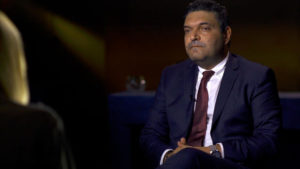
Petrides told us the passports of sanctioned oligarchs are in the «process» of being revoked and said Cyprus has seized 105 million euros of Russian deposits. A big number, but just a fraction of the estimated 5.6 billion euros of Russian deposits made in Cyprus last year. We also asked Minister Petrides about this, the dozens of Cyprus properties and active shell companies we were able to trace back to sanctioned Russians.
He told us any Cypriot company with an EU-sanctioned oligarch listed as the owner has been placed under «increased scrutiny.»
But often, Russian oligarchs don’t list their names anywhere near their assets.
Take the case of Roman Abramovich and his planes. According to U.S. investigators, they were hidden under five shell companies, stacked like Russian nesting dolls, with addresses in the BVI and British island of Jersey, all leading to an anonymous trust in Cyprus.
But it wasn’t Cyprus authorities who ultimately moved to seize the planes. It was prosecutors from the U.S. Department of Justice.
Lisa Monaco: There’s always been dark corners of the international financial system. And kind of like water finding a crack, that’s where the criminal networks will go.
U.S. Deputy Attorney General Lisa Monaco is in charge of the Department of Justice’s «Kleptocapture Unit,» tasked with finding the assets of sanctioned oligarchs hidden around the world.
Sharyn Alfonsi: It used to be, you know, the guy fleeing with suitcases of money. That’s not the case anymore.
Lisa Monaco: It is not.
Sharyn Alfonsi: It is crypto. It is planes. It is yachts. It is layered. And so how do you keep up with it?
Lisa Monaco: Even the most notorious actors, whether it’s the mafia, whether it’s rogue regimes, the best tool we have is following the money.
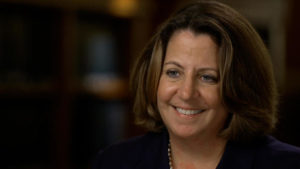
The money has led DOJ investigators around the world and closer to home.
It turns out, like the tourists who visit Cyprus, dirty money doesn’t stay on the island forever. Typically, it’s «washed» and invested in other, western economies.
Investigators say that’s one way Oleg Deripaska has been able to skirt sanctions.
Lisa Monaco: What the task force exposed was the network of enablers, and money launderers, and facilitators who helped him hide his wealth in real estate here in Washington D.C. and in Manhattan.
Sharyn Alfonsi: In the United States?
Lisa Monaco: In the United States, in artwork, in vanity businesses, including a music studio in Beverly Hills.
In their case, the DOJ alleges that in 2020, Oleg Deripaska arranged for one of his children to be born in the United States, even though he was under U.S. sanctions.
Sharyn Alfonsi: He has a child that’s a U.S. citizen now?
Lisa Monaco: He was able to do that in one instance. And then in the second instance, that was not accomplished.
Because U.S. Customs stopped it. The government case details how, as the war in Ukraine intensified, Deripaska used a «Cyprus» company to arrange «travel on a private jet from Russia to Los Angeles» for his pregnant girlfriend, moving money to rent a home for her in Beverly Hills. But when she landed in Los Angeles this summer, she was stopped by customs officers.
Deripaska, his girlfriend and the U.S. resident who helped him are now charged with sanctions evasion. They are not in custody, but the DOJ has announced plans to seize his U.S. properties worth an estimated $70 million.
Since the start of the war, the U.S. has moved to seize more than a billion dollars of sanctioned assets around the world.
Sharyn Alfonsi: So what should happen to those assets?
Lisa Monaco: We are seeking the authority from Congress to allow us to use the proceeds for the benefit of the Ukrainian people.
Oleg Deripaska has publicly criticized the economic impact the war in Ukraine could have on Russia. But U.S. investigators maintain he is a «Putin cronie» who is «propping up Russia’s war machine.»
Back in Cyprus, 60 Minutes found a villa in this seaside complex, offices in this building and more than a dozen «active» shell companies linked to Oleg Deripaska. The Cyprus government will not say whether it has frozen any of those assets.
Produced by Oriana Zill de Granados. Associate producer, Emily Gordon. Broadcast associate, Elizabeth Germino. Edited by Michael Mongulla.

